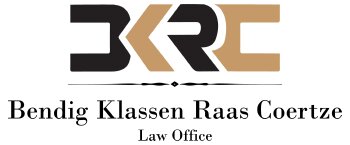Best Family Lawyers in Prince Albert
Share your needs with us, get contacted by law firms.
Free. Takes 2 min.
Free Guide to Hiring a Family Lawyer
List of the best lawyers in Prince Albert, Canada
Canada Family Legal Questions answered by Lawyers
Browse our 1 legal question about Family in Canada and read the lawyer answers, or ask your own questions for free.
- Hi there,I've been separated for 20yrs,would like to get divorced,
- What's the procedure, or legalities I'm facing, an how can you help?
-
Lawyer answer by mohammad mehdi ghanbari
Hello, Thank you for reaching out. I understand that navigating a divorce after a long period of separation can be a challenging and uncertain process, and I can offer some general guidance on the matter. General Divorce Procedure The first...
Read full answer
Canada Family Legal Articles
Browse our 1 legal article about Family in Canada written by expert lawyers.
- How to File for Divorce in Canada: A Step-by-Step Guide
- Family law in Canada covers separation, divorce, parenting, child support, spousal support, and property division, with rules split between federal law (Divorce Act) and provincial or territorial laws. You do not need a court order to separate, but you do need a court-issued divorce to legally end a marriage and... Read more →
About Family Law in Prince Albert, Canada
Family law in Prince Albert, Canada, operates within the framework of the Saskatchewan legal system and addresses a wide range of issues related to family dynamics. It covers matters such as marriage, divorce, child custody, adoption, and domestic partnerships. The goal of family law is to resolve disputes among family members, ensuring fair and just outcomes while prioritizing the best interests of children and maintaining the welfare of the family unit.
Why You May Need a Lawyer
There are several situations where individuals in Prince Albert may require legal assistance in family law matters. These include but are not limited to divorce proceedings, where property division, spousal support, and child custody arrangements must be negotiated; cases of domestic violence requiring protective orders; and establishing legal guardianship or adoption. A family lawyer can help navigate these complex processes, provide representation in court, and ensure that your rights and interests are protected.
Local Laws Overview
Prince Albert falls under Saskatchewan's jurisdiction, and key aspects of family law are governed by provincial statutes. The Family Law Act addresses divorce, child custody, and support obligations, while the Child and Family Services Act pertains to child protection matters. The province follows the "no-fault” divorce principle, meaning that blame or misconduct does not affect divorce settlements. It is crucial for residents to understand their rights and obligations under these laws to ensure compliance and protect their interests.
Frequently Asked Questions
What is the first step in filing for divorce in Prince Albert?
To file for divorce, you must submit an application to the Court of Queen’s Bench in Saskatchewan, demonstrating that your marriage has broken down, typically by living separately for at least one year.
How is child custody determined in Saskatchewan?
Court decisions regarding child custody are based on the "best interests of the child" standard, considering factors such as the child's emotional and physical needs, the stability of each parent's home environment, and the child's preferences.
What does "no-fault" divorce mean?
"No-fault" divorce means that the court does not consider the reasons behind the marriage breakdown when granting a divorce or during property division and spousal support negotiations.
Can grandparents apply for custody of their grandchildren?
Yes, grandparents can apply for custody or access to their grandchildren if it is in the child's best interests, but they must demonstrate significant involvement in the child's life for the court to consider their application.
Is mediation required before going to court in family law matters?
Mediation is encouraged as a first step to resolving disputes amicably, but it is not mandatory. However, it can be a time-saving and cost-effective method to reach an agreement outside of court.
How is child support determined?
Child support is calculated using federal and provincial guidelines based on the paying parent's income, the number of children, and the custody arrangements, ensuring the child's financial needs are met.
What should I do if I experience domestic violence?
If you experience domestic violence, seek immediate help by contacting local authorities. You may also apply for a protective order through the court to ensure your safety.
Who can adopt a child in Prince Albert?
Adoption can be pursued by individuals or couples, irrespective of marital status, provided they meet the requirements set by the adoption agency or court and demonstrate the ability to provide a stable and loving environment for the child.
What resources are available for legal aid in family law matters?
Low-income residents may qualify for assistance through Legal Aid Saskatchewan, which provides services for various family matters, including divorce, custody, and support issues.
Is there a difference between legal separation and divorce?
Yes, legal separation allows couples to live apart and address family matters like child custody and support without officially ending the marriage, whereas divorce legally dissolves the marriage.
Additional Resources
For more information and assistance, the following resources are invaluable:
- Family Justice Services: Provides mediation and parenting coordination.
- Public Legal Education Association of Saskatchewan (PLEA): Offers legal information and education.
- Legal Aid Saskatchewan: Provides legal services to those who qualify financially.
Next Steps
If you need legal assistance in family law, consider the following steps:
- Consultation: Contact a qualified family lawyer in Prince Albert to discuss your specific legal issues and options.
- Mediation: Explore mediation services as a first step to resolve disputes amicably.
- Legal Aid: Check eligibility for legal aid if cost is a concern, or access community legal clinics for support.
- Court Process: If necessary, initiate court proceedings with your lawyer’s guidance to protect your rights and interests.
Lawzana helps you find the best lawyers and law firms in Prince Albert through a curated and pre-screened list of qualified legal professionals. Our platform offers rankings and detailed profiles of attorneys and law firms, allowing you to compare based on practice areas, including Family, experience, and client feedback.
Each profile includes a description of the firm's areas of practice, client reviews, team members and partners, year of establishment, spoken languages, office locations, contact information, social media presence, and any published articles or resources. Most firms on our platform speak English and are experienced in both local and international legal matters.
Get a quote from top-rated law firms in Prince Albert, Canada — quickly, securely, and without unnecessary hassle.
Disclaimer:
The information provided on this page is for general informational purposes only and does not constitute legal advice. While we strive to ensure the accuracy and relevance of the content, legal information may change over time, and interpretations of the law can vary. You should always consult with a qualified legal professional for advice specific to your situation.
We disclaim all liability for actions taken or not taken based on the content of this page. If you believe any information is incorrect or outdated, please contact us, and we will review and update it where appropriate.
Browse family law firms by service in Prince Albert, Canada
Prince Albert, Canada Attorneys in related practice areas.









